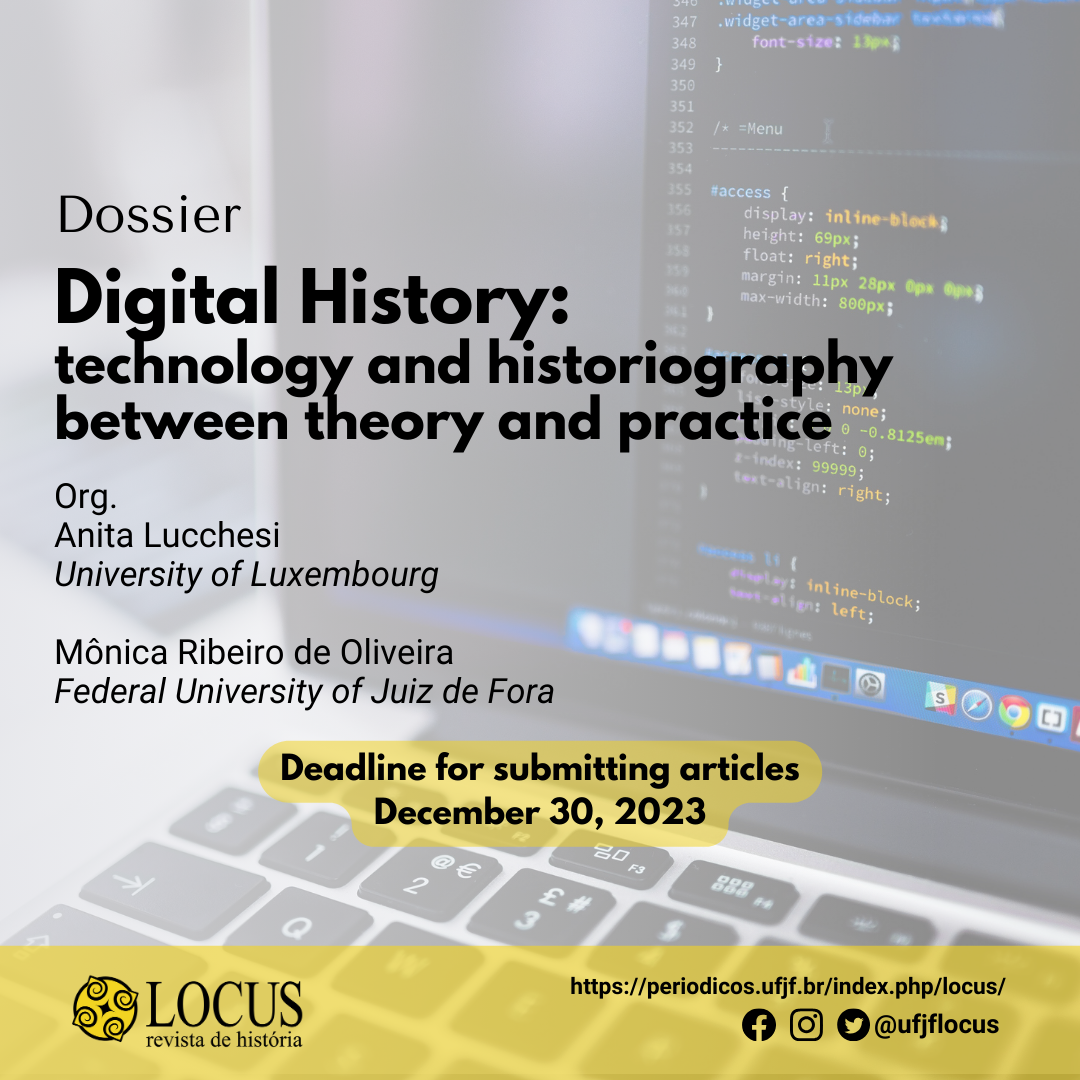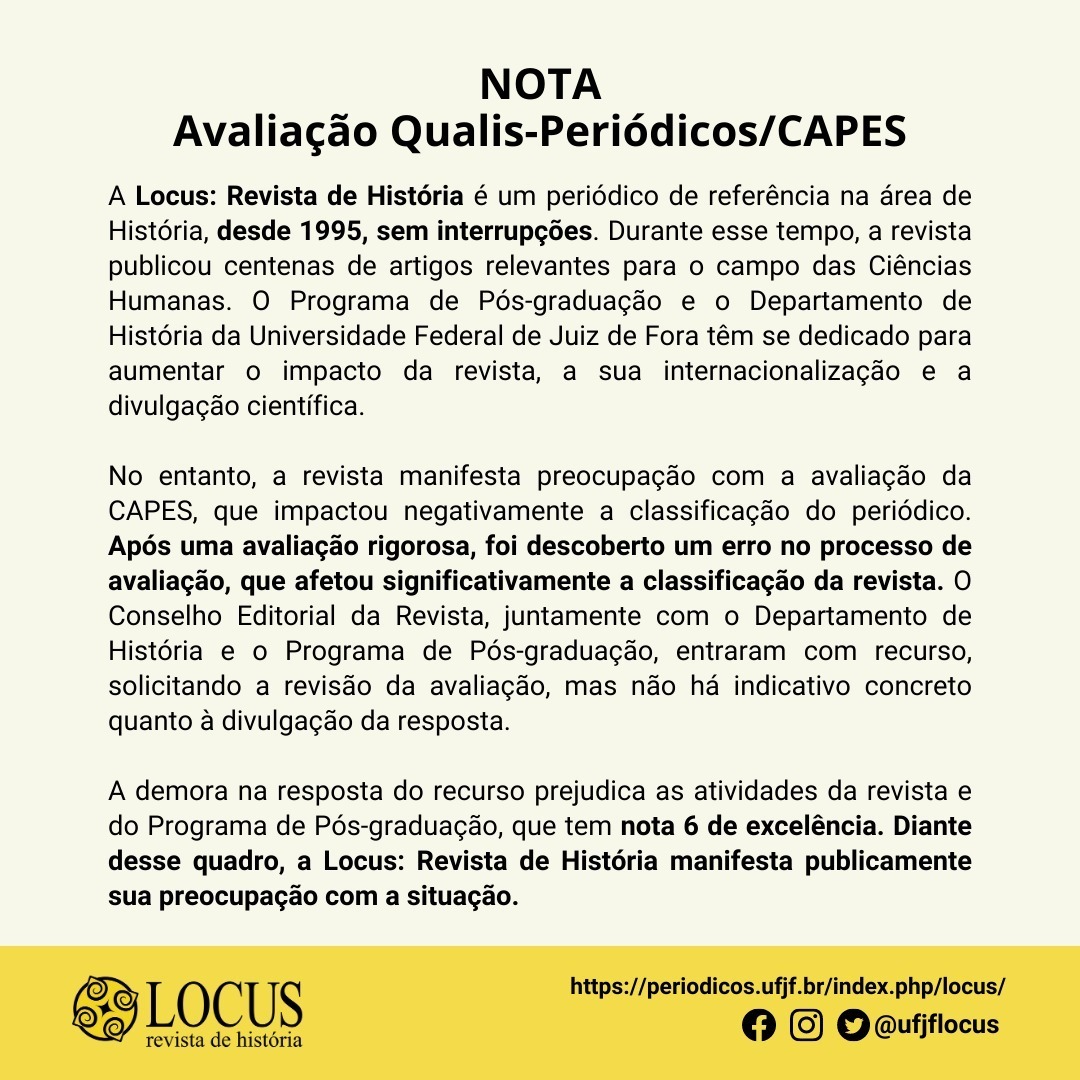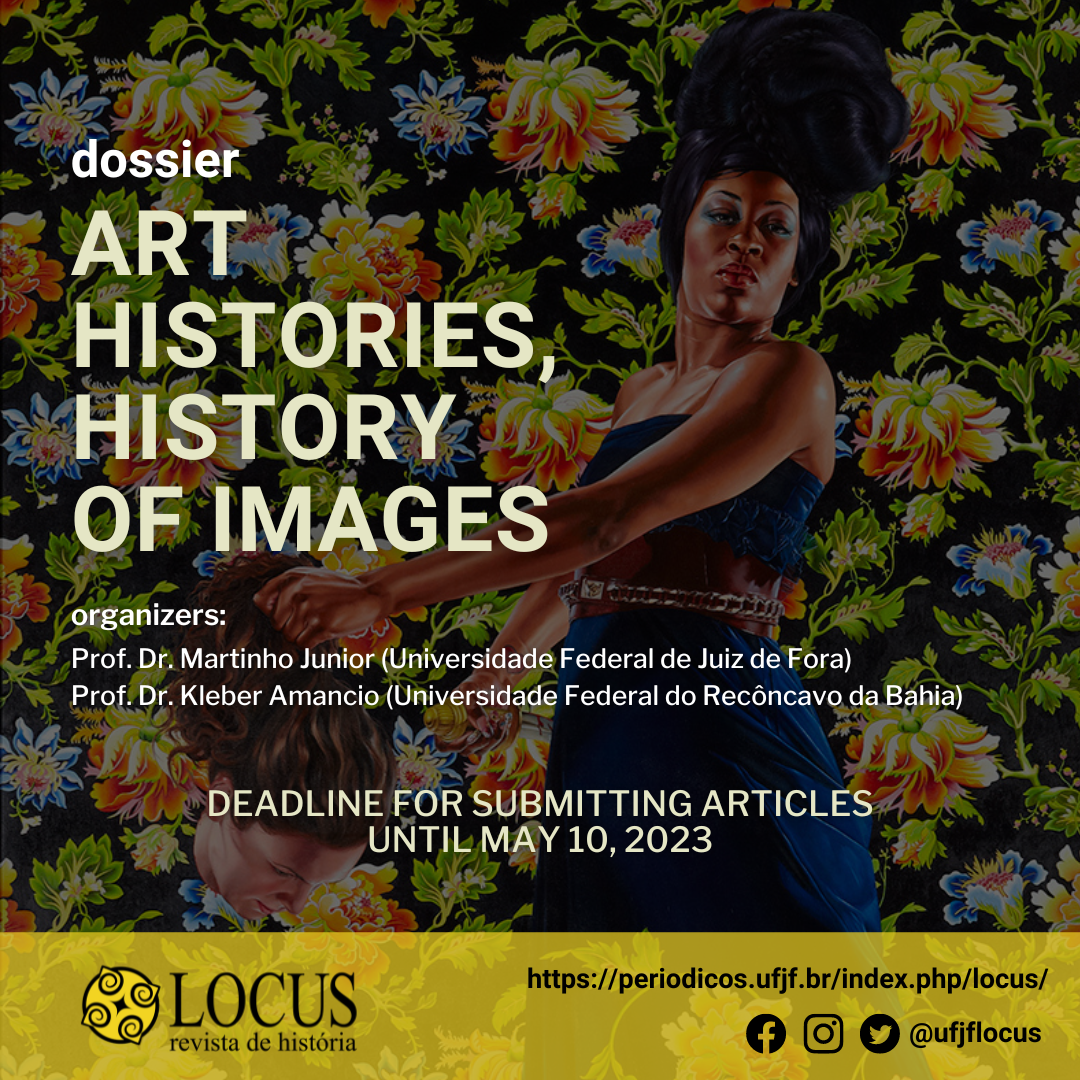Publicada a nova edição da LOCUS: Revista de História: dossiê O Brasil, a América Latina e a Segunda Guerra Mundial. Confiram!!!
É com senso de dever cumprido que apresento o segundo número do Volume 31 da Locus: Revista de História. O novo número é todo formado por artigos inéditos.
O dossiê ora publicado, organizado por Ismara Izepe de Souza, do Departamento de Relações Internacionais da Universidade de São Paulo, e por Filipe Queiróz de Campos, pesquisador no Laboratório de História Política e Social do PPGH/UFJF e professor substituto no Departamento de História da mesma instituição, reflete sobre os 80 anos do final da Segunda Guerra Mundial, abordando o tema de uma perspectiva, ao mesmo tempo, global e latino-americana. Os artigos reunidos no dossiê “O Brasil, a América Latina e a Segunda Guerra Mundial” honram a tradição das linhas de pesquisa do PPGH/UFJF, em suas reflexões mais amplas sobre história global, saberes situados, história política e usos políticos do passado. Como sugerido pela capa, revisitar a Segunda Guerra a partir de um ponto de vista latinoamericano, é também revisitar as relações de poder entre os Estados Unidos e a América Latina. Um tema que não poderia ser mais atual. Convido os leitores a lerem a apresentação, escrita pelos organizadores, e a conhecerem os oito instigantes artigos nele reunidos.
Três artigos avulsos fecham o volume, abordando temas clássicos de história política e da história social, também de uma perspectiva global e situada. O artigo “Os interesses do estado do Amazonas na Constituinte de 1890-1891”, de Geisimara Soares Matos, analisa a atuação política do Amazonas na elaboração da constituição de 1891. Em “O anarquismo italiano e a contrarrevolução preventiva: a análise de Luigi Fabbri sobre o fascismo”, Rafael Viana da Silva descortina o caráter pioneiro da análise crítica do fascismo italiano elaborada pelo pensador anarquista Luigi Fabri (1877-1935). Por fim, os sentidos das alforrias no processo de expansão escravista da cultura do cacau na Bahia da primeira metade do século XIX é o tema do artigo “Alforrias e libertos na ascensão da economia cacaueira de Ilhéus (BA), 1810-1850”, de Marcelo Loyola, Ivanice Ortiz e Raiza da Hora.
Este editorial foi escrito e o presente número definitivamente fechado pela equipe de gerentes editoriais, eles próprios e suas equipes todos pós-graduandas e pós-graduandos do PPGH/UFJF, entre as festas de final de ano de 2025. Sem Ana Amélia Gimenez no controle do fluxo de artigos, Alina Nunes e Chrigor Libério na revisão editorial, Gabriel Machado na diagramação final, Jéssica Toledo no design gráfico e Joyce Mirella na coordenação de comunicação, ele não existiria. Com este segundo número de 2025, celebramos dois anos de trabalho conjunto e eu concluo meu período como editora da revista. Ao grupo de gerentes editoriais e às suas equipes, meu muito obrigada!
Foi um trabalho gratificante. A partir do próximo número, minha colega Denise Nascimento assumirá a tarefa. Bem-vinda!
A todos, boa leitura.





